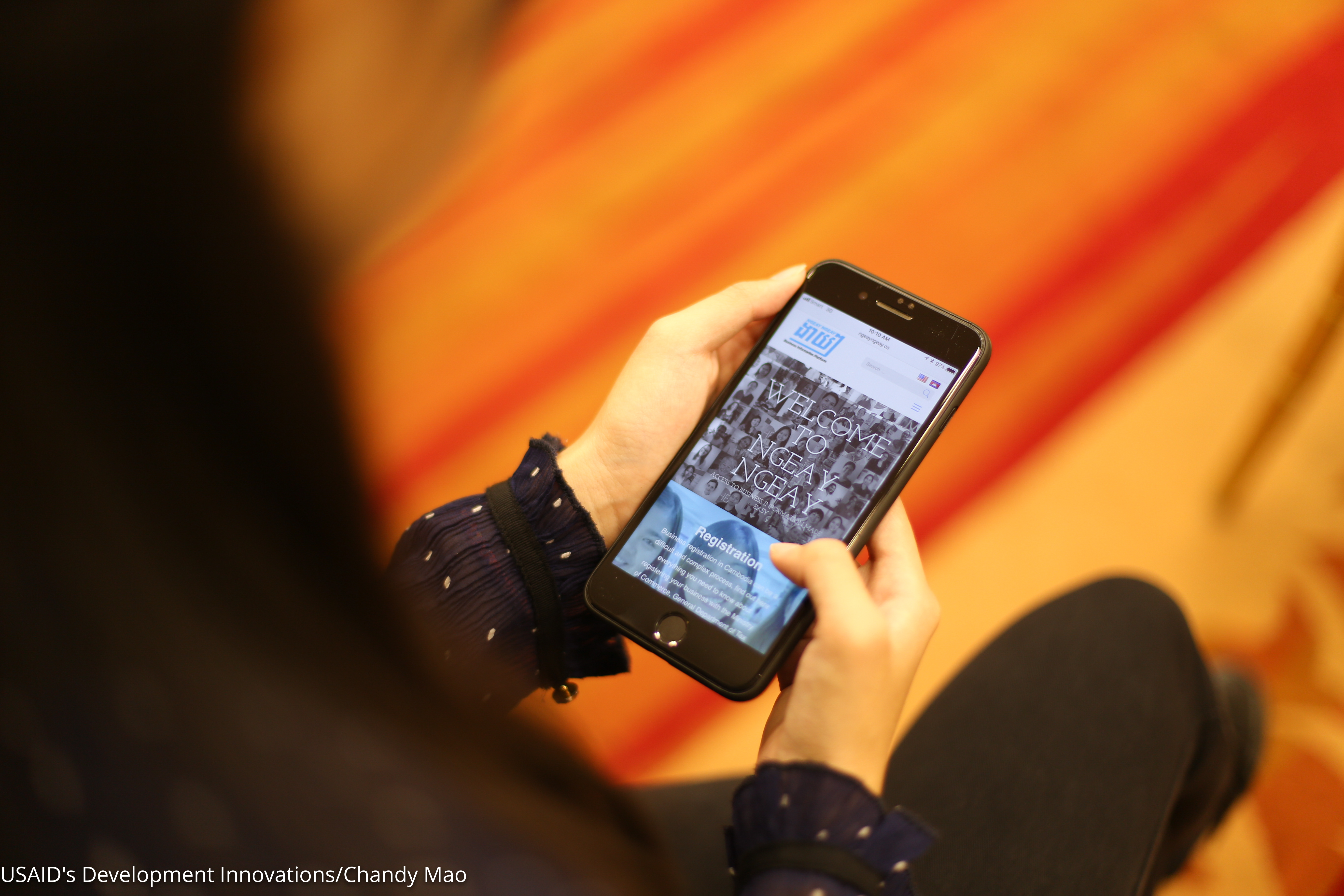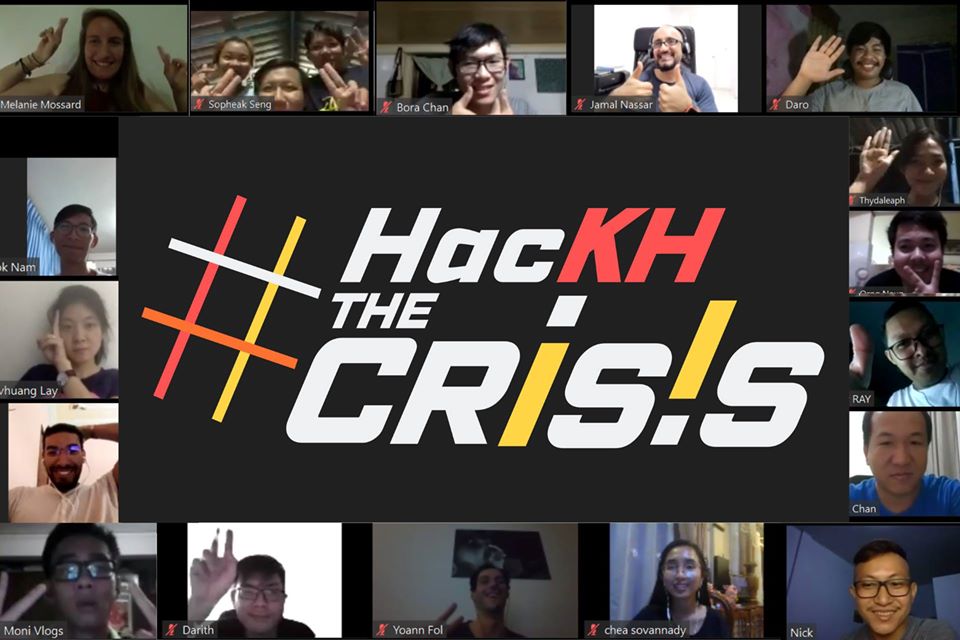Let us know what type of content you'd like to see more of. Fill out our three question survey.
Promoting Resilient Ecosystems: How Cambodians are Adapting in the Face of COVID-19
Apr 9, 2020
Five years in Cambodia leading the U.S. Agency for International Development (USAID)-funded Development Innovations project taught me a lot about innovation. I saw innovators employ entrepreneurial thinking to develop out-of-the-box, creative solutions to problems, helping hundreds of thousands of Cambodians—automated phone calls warning people of coming floods comes to mind, as does a mobile test prep application to help high school students prepare for national exams. It’s this entrepreneurial thinking that the world desperately needs in this time of hardship, where livelihoods, the economy, and social cohesion are being challenged in unprecedented ways. Which naturally begs the question: In the face of COVID-19, what happens next in Cambodia’s innovation community?
In this new world, trusted local networks and communities are more important than ever. The transition to social distancing and working from home has not been easy: Cambodians—the ones with internet access, at least—have been forced to move much of their lives online. This poses a challenge for Cambodians who are new to the digital world and may need support in developing digital skills and digital literacy. Cambodia’s innovators and tech-enabled civil society groups and businesses are critical in this environment and, unsurprisingly, are already developing context-specific programs and solutions to address the outbreak.

SHE Investments' Ngeay Ngeay business info and online learning site. Photo credit: Development Innovations.
A few examples:
- SHE Investments, the country’s only business support program exclusively for female entrepreneurs, is continuing to serve local businesses by moving its accelerators and coaching services online. It will expand its Khmer language e-learning options for entrepreneurs and add new content to help small and growing businesses ride out some of the shocks.
- Technovation Girls has moved all of its tech entrepreneurship training activities online, managing relationships between mentors and teams digitally. Technovation mentors will continue to support these young girls online to finish the four-month educational program and submit mobile app ideas and business plans to the global Technovation Girls challenge.
- Blogger and campaigner (and former DAI team member) Sotheavy AT, the founder of the popular environmental advocacy campaign Think Plastic, has switched gears to produce a Facebook-based campaign called Stay Home. Stay Home gives Cambodians easily accessible information about managing social distancing and keeping themselves and their families safe at home.
- Impact Hub Phnom Penh, in coordination with private sector, university, and ministry partners, ran the HacKHtheCrisis virtual hackathon last weekend to help bring together the actors already working to address the crisis. This airtable page lays out more than 30 Cambodian projects looking for technical and financial support to develop their solutions.

A recent virtual event mobilized more than 200 people from Cambodia’s innovation community to map COVID-19-related projects and match them with funders and supporters. Photo credit: Impact Hub Phnom Penh.
- Cambodian consulting firm The Idea Consultancy has released many of its business support tools for businesses that are struggling with cash flow management, managing staff, and financial forecasting during this uncertain time.
- Golden West Humanitarian Foundation, a Cambodian nongovernmental organization that provides personal protective equipment for the safe disposal of land mines, is also shifting its efforts to print face shields for health workers and develop ventilator prototypes to address local shortages.
- The Royal Government of Cambodia’s Ministry of Education, Youth, and Sport (MoEYS) is providing more online learning content through its popular Facebook page to assist students and parents. The Ministry recently announced a competition for mobile applications that address COVID-19-related problems in Cambodia.
In the face of the short- and long-term impact of COVID-19, development partners and donors must continue to rapidly adapt and respond with programming tailored that addresses these unique and ever-evolving challenges. To bolster local innovation ecosystems like Cambodia’s, whose innovators address local problems with local solutions, what should these donors and development partners keep in mind?
-
Advance digital skills. Build digital literacy and digital skills by supporting local ecosystem players that are already addressing the digital divide—consider Cambodian models such as the digital literacy and internet safety initiative from the GSMA, Google, the Ministry of Posts and Telecommunications, MoEYS, and Smart Axiata; or IT Academy STEP’s digital skills training programs. Explore ways to get similar services and programs to more citizens in need. Stay flexible so that local partners can define exactly how to create and deliver training and support in a safe, appropriate, and effective way.
-
Find adaption success stories in local ecosystems. Prioritize strategies and activities that support locally driven solutions. Engage influencers in your ecosystem to map actors already working on the problem, and find stories in the local media.
-
Enable funding to support local actors and catalyze rapid innovation. Local organizations, startups, and entrepreneurs need longer-term funding boosts to sustain their businesses and adapt to the new market. Make funding available for local civil society organizations and small firms to address the crisis within their own organizations, and ensure they stay afloat to provide critical services. This could mean adapting existing funding agreements or creating new funding opportunities to address local shocks. Read about USAID’s global response to COVID-19, and Smart Axiata’s Cambodia-focused COVID-19 relief fund.